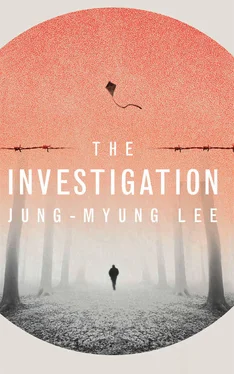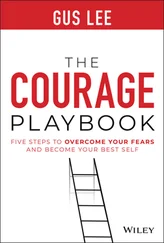His burning gaze seared through my skill as the amorphous pieces of truth began to find their places at last.
I burst out of the warden’s office, screaming.
I ran into Director Morioka’s office. He was getting off the phone. ‘Yuichi,’ he greeted me with his ever-pleasant demeanour. ‘The warden just called. He said you had a question for me.’ His voice was silky.
I glared at him, my eyes bloodshot. ‘I need your cooperation in the investigation of Sugiyama Dozan’s murder.’
‘Are you still on that case? Wasn’t the perpetrator caught and the investigation concluded? Don’t you have better things to do?’ Morioka looked at me sympathetically.
I spat out my rising rage. ‘The criminal was caught, but the incident wasn’t concluded. Because Choi wasn’t the murderer. Someone else killed Sugiyama.’
‘Who killed him?’
I took in a deep breath. ‘He’s in the infirmary.’
Morioka’s voice turned syrupy, trying to disarm me. ‘How did you end up believing such nonsense, Yuichi?’
I had to goad him into anger. ‘Sugiyama’s lips were sewn with surgical thread. Seeing that the killer used a surgical needle and thread, it’s clear that the son-of-a-bitch was a doctor. But he was sloppy.’
‘And you have proof?’
‘I saw the corpse. The stitches were crooked. He was probably shaking so violently, so frightened, that he ran off without even making a knot.’ I was lying through my teeth: the sutures were precise and immaculate. But I was trying my best to confuse him.
The corners of his eyes trembled slightly. He smiled. ‘Don’t go running your mouth off when you don’t know anything. Why would a Kyushu Imperial University doctor kill a trifling guard?’ He looked at me with a benevolent expression, but I could detect an edge to his warm smile.
I swallowed hard. ‘Sugiyama knew what was going on in the infirmary. He stood up to those murderers. He beat certain prisoners so they wouldn’t be included in the experiments. His only fault was that he had a heart.’
Morioka gave me a pitying smile and pushed his glasses up his nose. ‘You’re partly right, but mostly wrong. He was a traitor who needed to be eliminated. His lips had to be sealed.’
‘A traitor?’
‘As a guard, Sugiyama had pledged to give his life to the Empire. But he forgot who he was. I talked to him several times, but he wouldn’t listen. He was once a great soldier for the Empire, but he became a turncoat. Let me assure you, he was a problem that needed to be removed.’
I didn’t know what to do.
He continued gently, ‘Yuichi, I do hope Sugiyama didn’t infect you. You’re too young and good to be marred with the ideology of treason.’
‘The problem isn’t Sugiyama, it’s the rest of us!’ I cried.
‘I know it’s hard for you to accept it, what with your youth. But our nation is at war! As a soldier, you must be cognizant of that!’
‘I’m not the one who started this war! Those who started this war killed thousands of people, and they did this just to grab more power. They’ll pay for it. They have to pay for it!’ I knew I was going too far, but I couldn’t stop now.
Morioka kept his expression gentle. ‘You’re a smart young man who has a brilliant future ahead of you. You’re not foolish and brutish like Sugiyama. I believe in you.’
I wasn’t brave enough to risk death. I wanted to live. As
Choi told me to, as Dong-ju requested, I wanted to survive.
Watching me grappling with this dilemma, Morioka’s face bloomed into a smile. ‘Sugiyama’s dead. That’s an irreversible fact. We must make sure his death wasn’t for naught. We’ll pray for him to go to a better place. Although he was a terrible man, his death could still be valuable to us.’
I felt violently sick. I covered my mouth and ran towards the wall. He followed me and rubbed my back as I heaved.
‘See? You act tough, but you’re actually quite gentle. This is life — disgusting. But you’ll find your way. I’m sure you’ll forget everything you heard in this office today, right?’
I ran out. I couldn’t do anything to stop this. I was overwhelmed by this immense conspiracy. I wanted to tell someone, but I didn’t have anyone to tell. Even if I did, nobody would believe me. Nobody, I was sure, could do anything about any of it.
ANOTHER LINE OF CONFESSION
In July, damp ocean air drifted over the prison walls. Bluish-black mould bloomed on the walls of the censor’s office. Air raids continued. The bomb shelter was like the inside of a dark grave. I stared at the darkness. I thought of faces — those of the dead and those of the living. I was one of the survivors, but that made me ashamed.
By August, high humidity permeated the prison. The bluish mould in the censor’s office had spread to the pillars. The voices on the radio were becoming more heated and indignant, as the air raids grew ever more intense, death tolls climbed, and cities became mass graves. And yet I lived on. That in itself made me feel as though I’d committed a crime. I closed my eyes, submitted to easy lies and lived with evil. The truth could only live inside me. The war kept dragging on.
On 7 and 9 August, Hiroshima and Nagasaki were bombed. Everything burned and vanished. The war ended on 15 August. When I heard the news, I counted on my fingers to work out the number of days I’d spent without Dong-ju — just one day shy of six months. He’d died only six months before the independence of his country. I was too exhausted to be glad. And that was how I fled from that filthy era.
TRANSCRIPT OF JAPANESE WAR CRIMINAL INTERROGATION
DATE: 29 October 1946
LOCATION: Fukuoka Prison
INTERROGATOR: Captain Mark Haley, War Criminal Investigator, Judicial Department, Pacific Ocean Areas Command
WAR CRIMINAL: D29745 Watanabe Yuichi
INTERPRETER: Nakashima Kyotaro
HALEY: We finished reviewing the lengthy document you wrote during your year of imprisonment. Is that all you have to say?
WATANABE: Yes.
HALEY: If this testimony is accurate, you may not be able to avoid being sentenced as a war criminal. Do you understand?
WATANABE: I do. I didn’t write this to defend myself. This is just a record of what I witnessed during the war.
HALEY: Is this the truth? Or is it fiction?
WATANABE: It’s both. My writing is the truth, but there are some fictional elements.
HALEY: Is the human experimentation by the Kyushu Imperial University medical team based on facts?
WATANABE: Yes.
HALEY: Do you know about the American B-29 bomber that was forced to make an emergency landing in Kyushu in May 1945?
WATANABE: No.
HALEY: Do you know anything about the eleven men who were on that plane?
WATANABE: No.
HALEY: The Western Military Headquarters overseeing Kyushu sentenced Lieutenant William Fredericks and eight men to death without a trial. Do you know about that?
WATANABE: No.
HALEY: From our investigation, it has been revealed that the Kyushu Imperial University medical team brought the captives to the infirmary at Fukuoka Prison. Do you know about that?
WATANABE: No.
HALEY: The prison records do not mention the medical treatments you wrote about.
WATANABE: We were ordered to burn all the records when the war was over. I was the censor and was in charge of the incineration of documents. I took all the records from the guard office, the censor’s office and the warden’s office and burned them.
HALEY: Why did you write about something that nobody else has talked about?
WATANABE: Because someone has to know. I can’t let the things I saw vanish into oblivion.
HALEY: Why didn’t you just record the facts? Why did you write it in the form of a novel?
Читать дальше












